These stunning pictures show inside a ‘forgotten’ sea cave that is thought to have special healing powers.
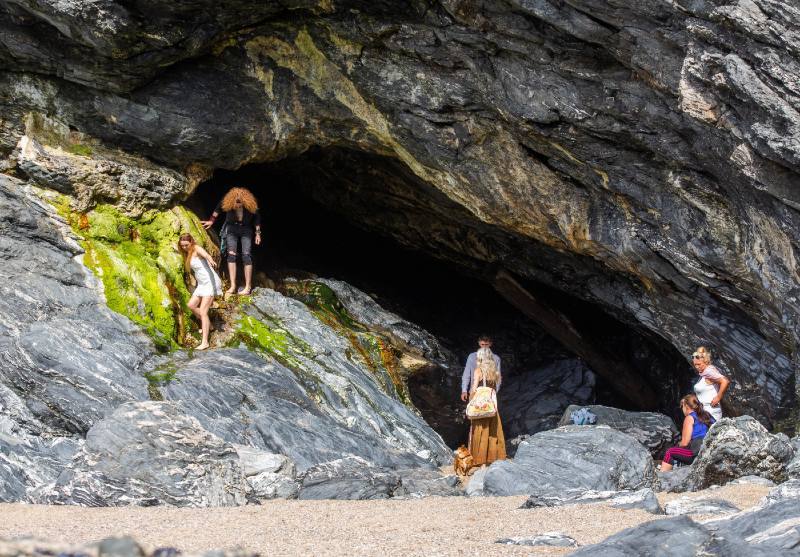
The multicolored grotto was once one of Britain’s most mysterious sites and attracted huge numbers of visitors during the 17th and 18th centuries.
In those days, pilgrims and the sick would make their way to the cave to drink healing waters from the “holy well.”
But in recent decades it has become largely secluded and unknown.
Most tourists now visiting Holywell in Cornwall, England are unaware of its hidden wonders.
The site, known as St Cuthbert’s Cave, creates mineral deposits leaving its stones red, green, blue, and yellow.
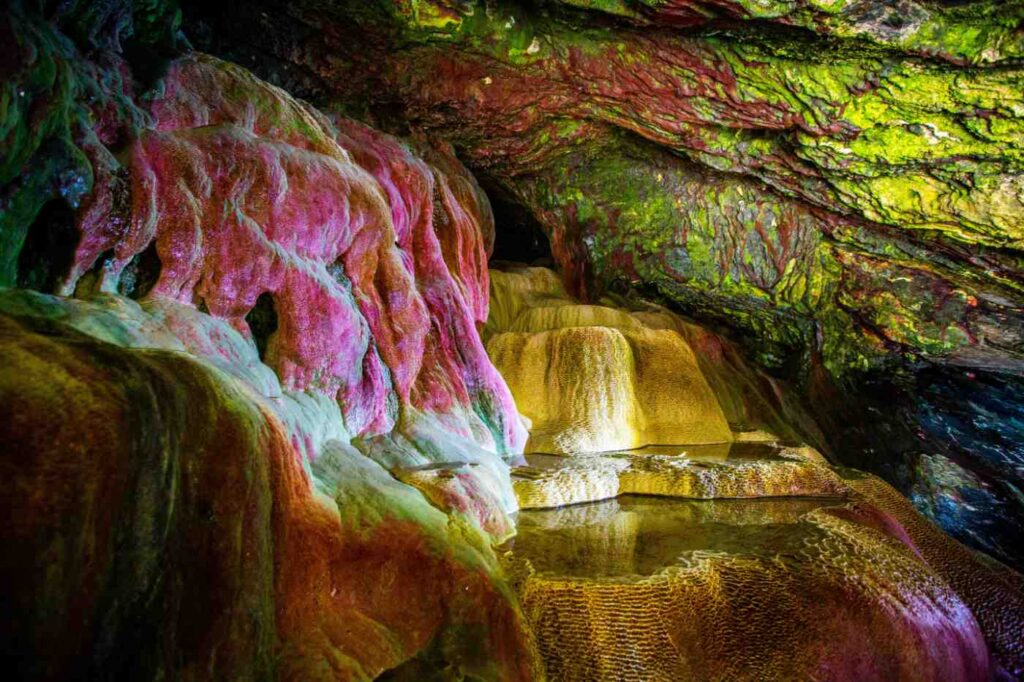
The spring water it creates was once described as the “elixir of life” in writings from the 19th century and were said to contain “life healing” minerals that trickled through the cave’s natural limestone.
Read: Tiny Forests Are Springing Up All Around Europe, Inspired By Japan, to Help Restore Biodiversity
John Cardell Oliver’s ‘Guide to Newquay’ from 1877 gave a detailed description of the cave from a bygone era.
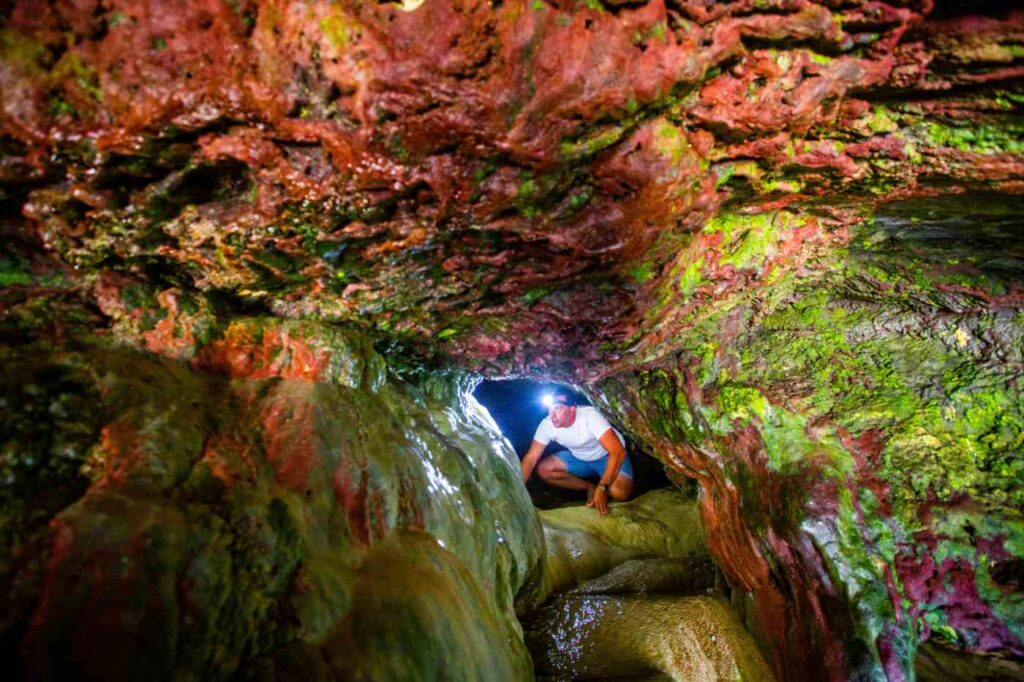
He wrote, “The legend respecting the well is, that in olden times mothers on Ascension Day brought their deformed or sickly children here, and dipped them in, at the same time passing them through the aperture connecting the two cisterns; and thus, it is said, they became healed of their disease.
“This well has Nature only for its architect, no mark of man’s hand being seen in its construction; a pink enamelled basin, filled by drippings from the stalactitic roof, forms a picture of which it is difficult to describe the loveliness.
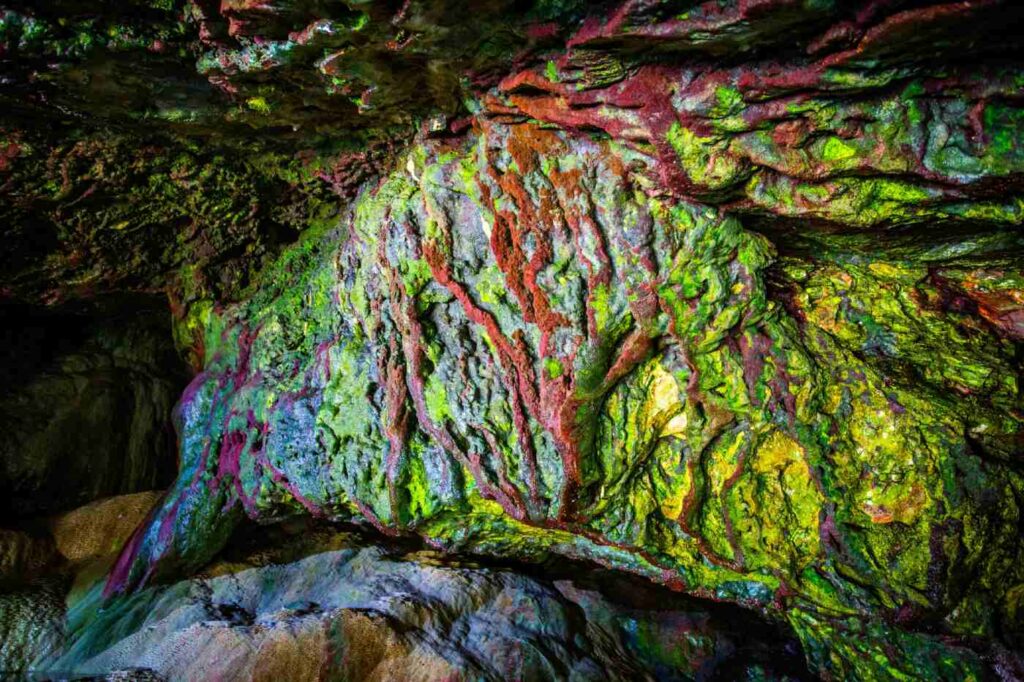
“What wonder, then, that the simple folk around should endow it with mystic virtues?”
The spring water has been described as tasting like cereal milk and forms shallow pools within the basins, before trickling out from the cave and on to the outside beach.
Unlike other so-called ‘holy wells’ in the UK, the spring water in St Cuthbert’s Cave is washed out twice every day, when the tide comes in and floods the cavern.
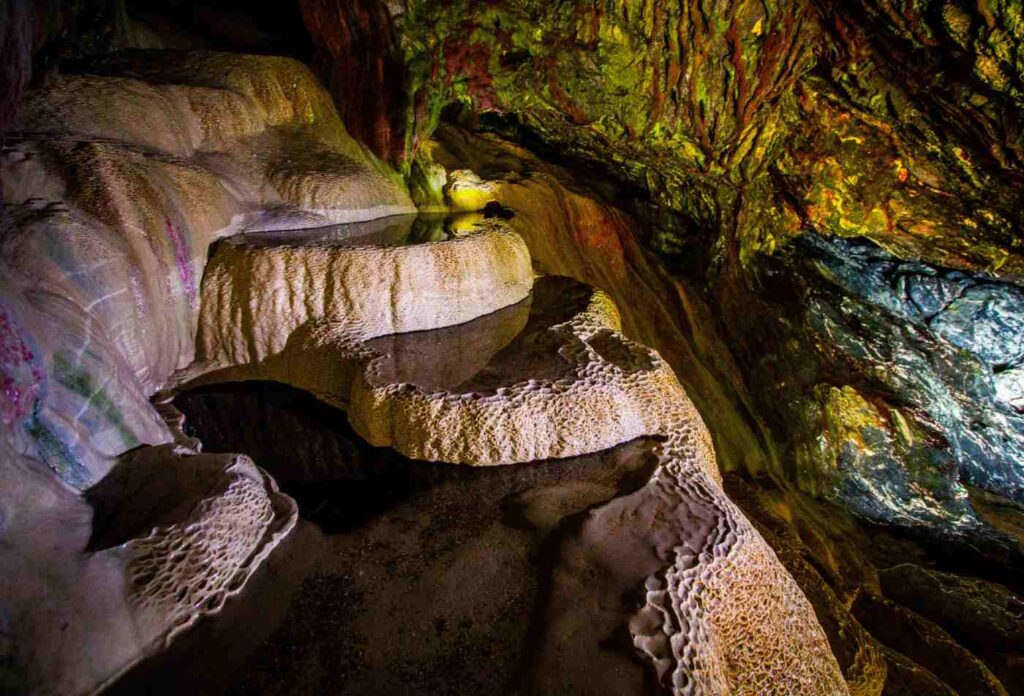
Its popularity was also recorded by William Hals in his “History of Cornwall”, which he compiled from 1685 until 1736. In his book he wrote, “The virtues of this water are very great. It is incredible what numbers in summer season frequent this place and waters from counties far distant.”
Share This Story With Your Friends Who’d Love To See A Rainbow Cave..




















